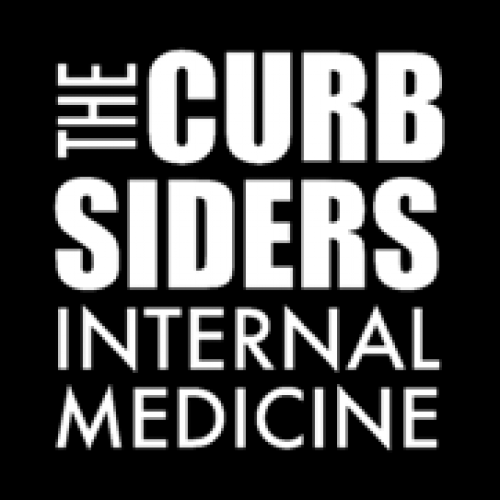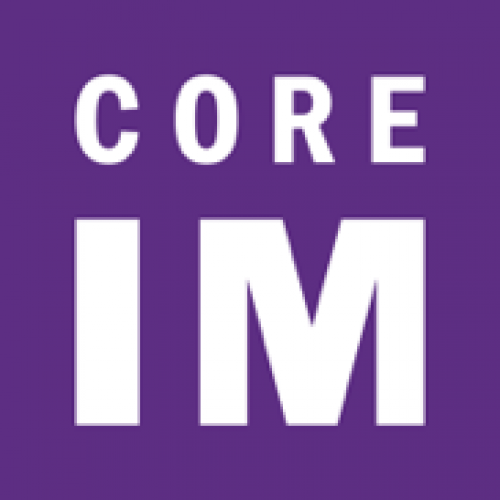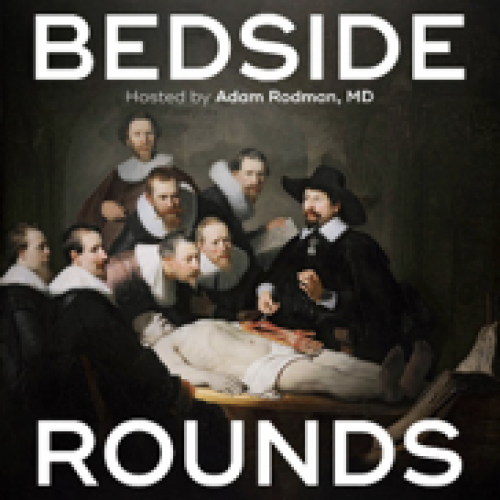Medical Education On The Go: Podcasting 101
Faculty Mentor: Rachna Rawal MD2 (Twitter: @RawalRachna)
- Saint Louis University School of Medicine
- University of Pittsburgh Department of Medicine
We are used to using books, videos and PowerPoints to learn, but in the last several years a new platform of medical education is surfacing. The growth of medical education podcasts has been remarkable. For the internist driven by curiosity, the variety of podcasts available for medical education should be more than sufficient, and there is likely a podcast format or topic niche that fits your interests. Time that was previously spent driving or doing mundane tasks around the home are now extra learning opportunities. Our interest in medical podcasts started in medical school through the Best Science Medicine podcast, focused on evidence-based primary care and produced by Michael Allan and James McCormack1. Currently, the 5 to 10 medical podcasts we listen to regularly serve as one of the main sources of our continued learning and give us access to some of the best medical educators from around the country. We would like to go through why we find them so appealing and give a brief overview of the podcasts that we believe have the strongest influence on medical education. You can even refer to them on rounds!
So many! Where to start??
There’s many to pick from. Try a few of each and see which you like the most! All of them are available online and through most podcast platforms. In no particular order:

The Curbsiders (@thecurbsiders)2: Matthew Watto, Paul Williams and Stuart Brigham host this excellent podcast that “curbsides experts to bring listeners clinical pearls and practice-changing knowledge.” Episodes tend to last around an hour long with the first ten minutes focusing on introducing the expert and physician wellness with the remainder of the time focusing on delving into a topic. Topics range from management of specific diseases, career improvement and improving diagnostic abilities. At this time, there are 178 episodes! We recommend starting with the following: Episode 32 - Syncope, 41 - HIV, PrEP and STI screening, 48 - Hyponatremia Deconstructed, 65 - EM vs IM, 99 - Cancer Survivorship, 125 - Hidden Curriculum, 131 - A Case of Cough and Dyspnea, 141 - Wound Care Pearls, and - 152 Becoming a PGY2. Episode websites also include visual summaries and links to references.

Core IM (@COREIMPodcast)3: Hosts Shreya Trivedi, Marty Fried and their team produce an extremely well thought out medical education podcast. Each episode is formatted differently depending on the topic covered. The various formats include Hoofbeats (a clinical case scenario), Mind the Gap (assessing the evidence behind common medical practices), 5 Pearls (5 applicable evidence-based pearls on a core internal medicine topic). Episodes encourage active learning by asking listeners to answer questions and engage in spaced repetition by revisiting previously covered topics briefly in subsequent episodes. The CoreIM team continues to innovate by creating new segments, and also provide learning materials through Twitter and Instagram. Our favorite episodes include Episode 2 - Admission Paracentesis, 14 - A Case of Weakness, 15 - CIN, 20 - Vancomycin, 27 - Alcohol Use Disorder, 39 - Stress Testing, and 43 - Difficult Patients. The website includes summaries, references, and links to other social media resources.

The Clinical Problem Solvers (@CPSolvers)4: with Rabih Geha, Reza Manesh, Arsalan Derakhshan, Sharmin Shekarchian, Daniel Minter and their team is the go to place for improving clinical reasoning. With presentations of clinical unknown cases through short aliquots of information, the hosts and their guests model the thought process of diagnostic reasoning. Some cases are dissected by relatively new learners to provide insight for improvement of diagnostic reasoning for novice learners and instruct how to direct improvement of diagnostic reasoning in learners as an attending. The hosts also produce excellent diagnostic schema to help learners organize a differential diagnosis. Our favorite episodes include Episode 2 - Hyponatremia, 5 - Jaundice, 8 - Hypercalcemia with Dr. Bob Centor, 14 -Hemolytic Anemia, 19 - Eosinophilia, 21 - Intrarenal AKI with Dr. Daniel Restrepo, 28 - Clinical Unknown Abdominal Pain and Intractable Vomiting, 35 -Clinical Unknown Syncope, 39 - SVT with Dr. Zaven Sargsyan. The website includes the diagnostic schema, which are also available as a mobile app, which comes in handy on the wards.

Bedside Rounds (@BedsideRounds)5: A bit different from the others, Adam Rodman produces a podcast focused on “fascinating stories in clinical medicine”. By delving into the detailed history behind different topics in medicine, Dr. Rodman tells incredible stories that give context to our everyday medical practice. He strives to answer the question of how and why (and sometimes if we really even do) know the things we know in medicine. Highlight episodes include Episode 2 - Full Code (resuscitation), 8 - I will Harm (nocebo effect), 9 - Laennec’s Cylinder (history of the stethoscope), 14 - The First Trial, 22 - The Assassination (of James A Garfield and his medical care), 24 - W56.22xA (Nosology), 29 -Curse of the Ninth (Gustav Mahler’s rheumatic heart disease), 35 - Sherlock, 39 - The White Plague (Tuberculosis), and 45 - The French Disease at 500 (a session from the 2018 ACP national conference with Dr. Tony Breu on the history of Syphilis). The website includes podcast transcript and an impressive list of references, sometimes dating back centuries.
The foundations of modern evidence-based education includes spaced repetition, interleaving of topics, and varied practice, as described in Mark McDaniel and Peter Brown’s incredible book, Make It Stick6. The availability of high-quality medical podcasts allows for these concepts to be put into practice. Podcasts are released periodically and cover diverse subjects so listeners are exposed to a variety of topics. They are also presented in varying formats ranging from an interview to a morning report style case-based discussion that allows listeners to be exposed to topics in different contexts. Engaging with topics through these resources spaced out over time in different formats helps to solidify elusive concepts, and medical podcasts continue to help put sound medical education principles into practice.
Curiosity: the mark of the internist
As one of a multitude of resources available to those involved in modern medical education, medical podcasts are becoming increasingly utilized by students, trainees, and attendings as a way to satisfy our curiosity. As the incredible educators who produce medical podcasts create these resources, we continue to benefit from the fruits of their labor free of charge. The amount of time that goes into researching and recording is staggering, and we are extremely grateful for their hard work on behalf of promoting high quality and innovative medical education. Additionally, podcasts allow you to learn from experts in different fields, experience clinical vignettes and reasoning in a different manner than traditional lectures and provide you with ample resources to use in your evidence-based medicine tool-kit. The best part is that you can listen to them anytime, anywhere, with this flexibility often particularly appealing to the modern learner. We can say that podcasts have become part of our educational routine and we look forward to them daily. We aspire to encourage other trainees and physicians to learn from them as well.
References:
- Allan M, McCormack,J et al. Best Science Medicine Podcast [Audio podcast]. Retrieved from https://therapeuticseducation.org/bs-medicine-podcast
- Watto M, Williams P, Brigham SK et al. The Curbsiders [Audio podcast]. Retrieved from www.thecurbsiders.com
- Trivedi S, Fried M et al. Core IM Podcast [Audio podcast]. Retrieved from www.coreimpodcast.com
- Manesh R, Geha R et al. The Clinical Problem Solvers [Audio podcast]. Retrieved from www.clinicalproblemsolving.com
- Rodman, A. Bedside Rounds [Audio podcast]. Retrieved from www.bedside-rounds.org
- Brown, Peter C. (2014). Make it stick : the science of successful learning. Cambridge, Massachusetts :The Belknap Press of Harvard University Press.




























































